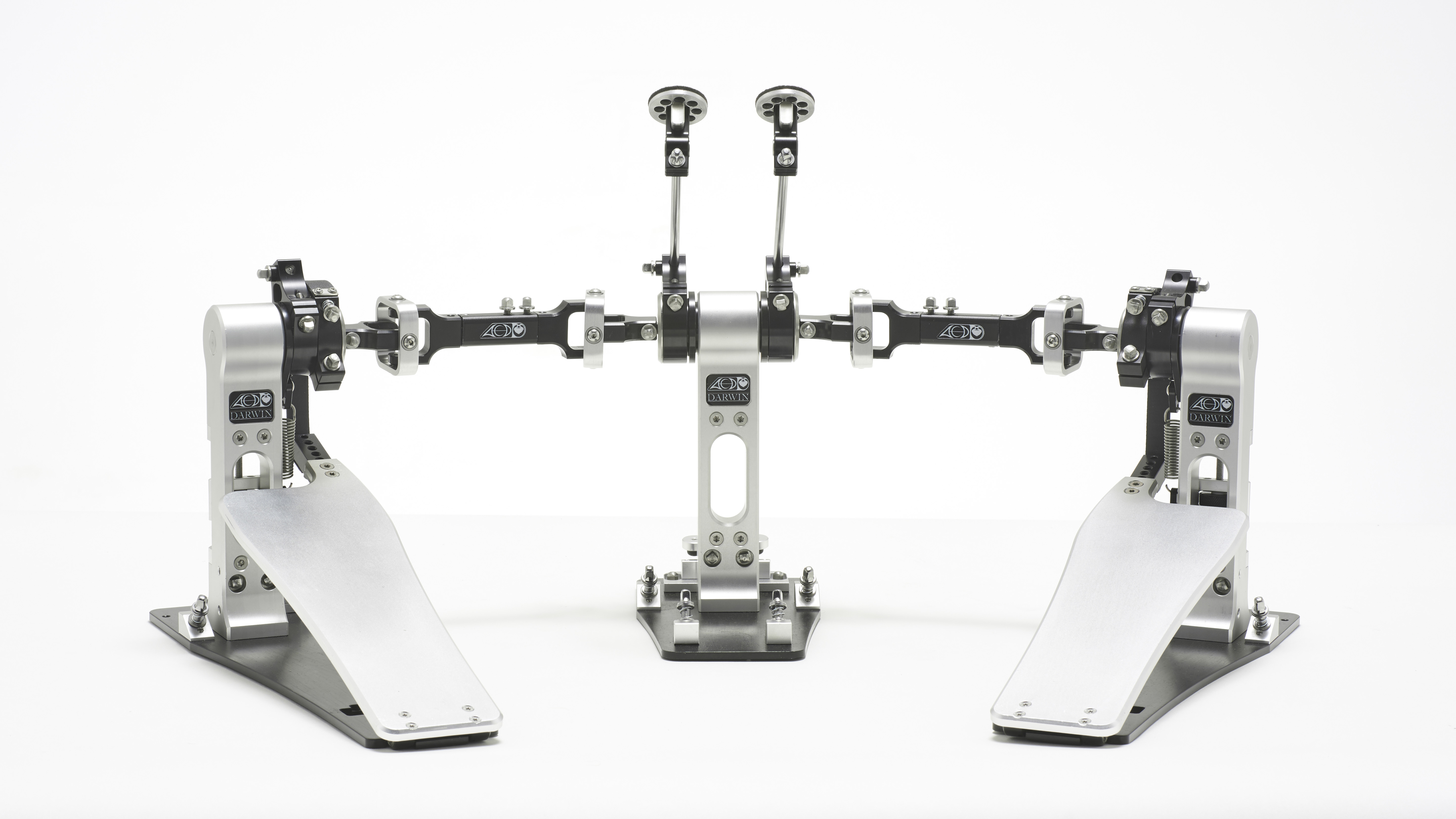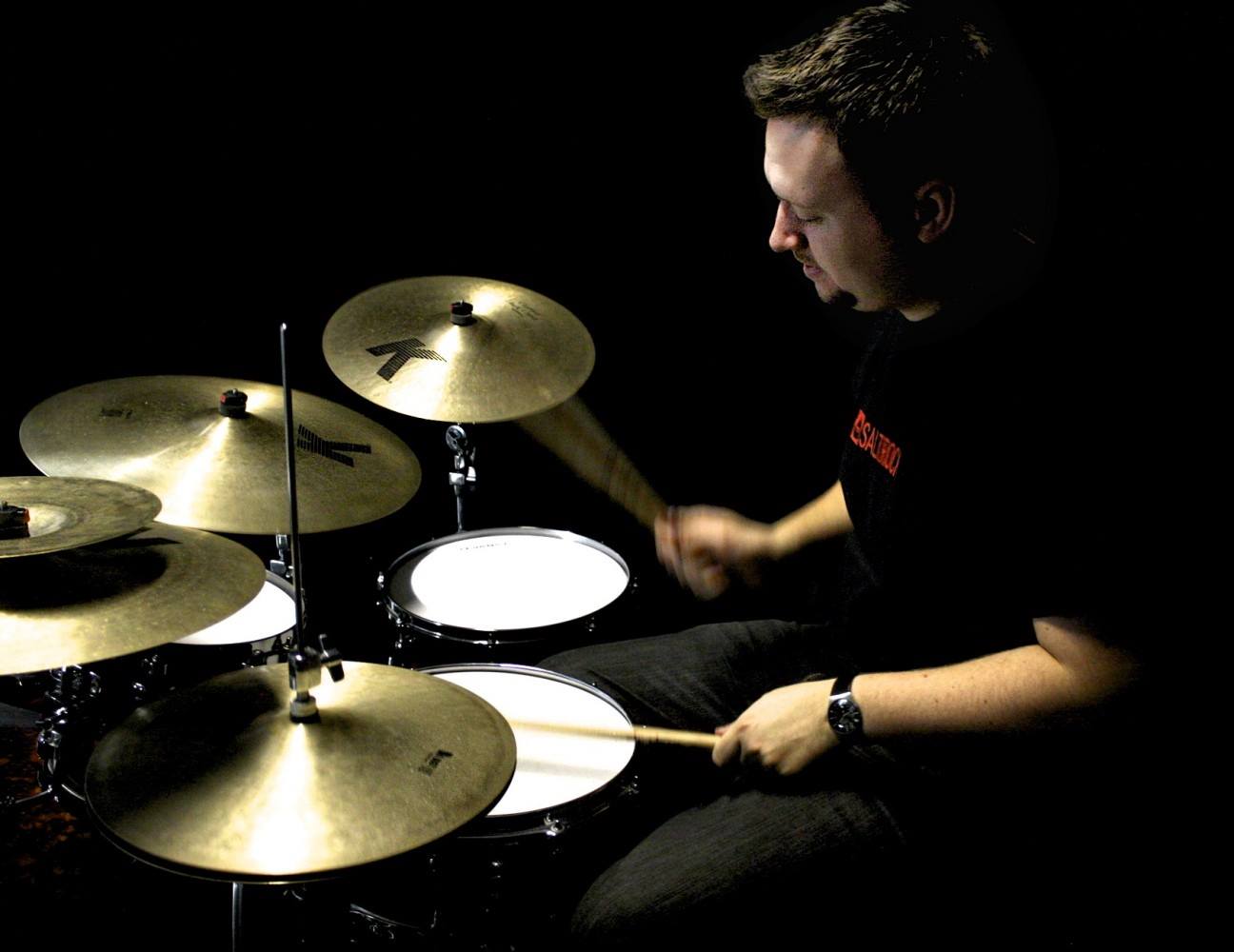MusicRadar Verdict
There’s no arguing that the Darwin is a stunning pedal but it does come at an eye-watering price. The build quality is second-to-none and despite feeling perfect out of the box, the level of adjustability on offer is incredible.
Pros
- +
Incredible build quality
- +
Amazing playability
Cons
- -
The performance comes at a very high price
MusicRadar's got your back
Founded by trained carpenter & mechanical engineer Dennis Namesnik, ACD Unlimited has been hand-producing drums and hardware for little under a decade. Feeling that the double pedal market for left handed players was limited, the Austrian engineer put his skills into practice producing a pedal which addressed issues he felt were all too common with standard designs. Working from the ground up, the result was the Darwin pedal which is now available in a selection of configurations - the latest being the middle pedal, a returning trend of late.
Build
The highly customisable Darwin pedals are available as a single, double, lefty-double and the middle version we have here, in addition to a hi-hat stand and remote hi-hat setup. Each model is available with three footboard options - shortboard, longboard or ‘lowboard’ which in principle is a shortboard without the heel plate, meaning that a player's heel rests directly on the floor.
The longboards of our review model are completely smooth from top to bottom with no added grip or imprinted logos, finished in a clean brushed steel to match the main tower sections of the pedals. This is contrasted beautifully by the jet black of the other components including the baseplates, cams and driveshafts. Each Darwin model is also available in a completely black finish.
The middle pedal incorporates two single pedals, each the mirror image of the other, joined to a central tower by two short drive shafts. The central design allows for complete symmetry which should result in a completely even pedal response - something that can be difficult to achieve within a standard master and slave pedal design.
ACD’s Ultimate Driveshafts have been carefully engineered to feature two joints which incorporate ballbearings, allowing them to be freely rotated both horizontally and vertically. This is to enable a smoother transition of force and reduce strain on what is undoubtedly a key component of the pedal design.
Breaking from the norm once again, there is no chain drive option for the Darwin but instead a belt comprising nylon, kevlar and neoprene, or a direct drive option. The belt of our review model can be shortened or lengthened to preference by moving the piece that attaches it to the pedal board across six spaced notches.
Other proprietary features include ACD’s Hoop Clamp, Dynamic Beater and Beater Shifter which we’ll dive into shortly. These specialist parts, along with belt or direct drive kits, footboards and the Ultimate Driveshaft can be purchased as individual upgrades for existing pedals. ACD products can only currently be purchased direct from its website and each Darwin pedal is built to order with a 4-6 week turnaround.
Want all the hottest music and gear news, reviews, deals, features and more, direct to your inbox? Sign up here.
Hands-On
Whilst assembling the pedal the attention to every small detail becomes apparent. The Hoop Clamp which attaches the central part of the pedal to the bass drum is able to move back and forth independently of the baseplate. This small touch not only accommodates for a perfect fit on any size hoop but small rubber pads on the inside help secure the pedal in place whilst offering extra protection to the hoop’s finish.
The Ultimate Driveshafts look daunting at first due to the space-age-looking bearing joints but attach simply using just one screw on each end. These joints allow the slave pedals to be placed in any position and still maintain the same fluidity of movement. As we push down the footboard we’re mesmerised by the individual movements of each component and also how utterly silent the mechanisms are. The driveshafts are extendable by only 2cm each.
The pedals do feel incredible to play, responding quickly and smoothly to every movement. They feel so connected to our every movement that it’s reminiscent of a direct drive despite being belt driven. The spring which is located in a central position feels perfectly responsive and is easily adjusted by a clever notched dial system built into the tower section.
The Dynamic Beaters are a thing of beauty and sound as good as they look. Our review model uses the standard aluminium version but there are also heavy versions made from stainless steel. Both also feature a removable nine-gram weight. The thin disks are rapidly interchangeable by simply twisting and unscrewing them. This allows for switching between different weights and materials (felt and wood available) on-the-fly. Combined with the Beater Shifter which allows the shaft to be moved back or forward and a tilting mechanism on the beater itself, it is always possible to get a completely square contact with the drum head. This makes for a beefy low-end and a solid feel under-foot.
As standard the cams are almost completely round except for a slight lip. With just a few simple adjustments the shape can be drastically altered to produce a powerfule effect. We loved the standard setting but the ability to adjust the feel without having the replace any parts is a stoke of genius.
Due to its painstakingly hand-built nature, the Darwin pedal comes at an astronomical price, particularly when compared with mass-produced offerings from the likes of Tama and Pearl. It’s worth remembering though that each pedal can be used as a single which offers some extra setup options.
Tom is a professional drummer with a long history of performing live anywhere from local venues to 200,000 capacity festivals. Tom is a private drum tutor, in addition to teaching at the BIMM Institute in Birmingham. He is also a regular feature writer and reviewer for MusicRadar, with a particular passion for all things electronic and hybrid drumming.

